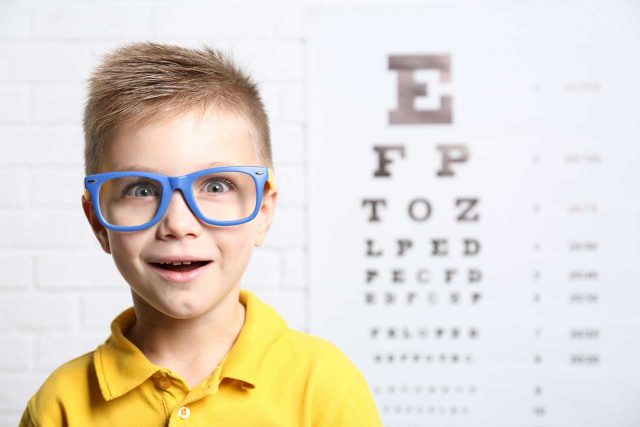Convergence Insufficiency and Convergence Excess
Binocular Vision Disorders
Our goal at Hartsdale Family Eyecare is a lifetime of clear vision. Dr. Schwartz has been providing Vision Therapy for her patients since 1983. We help children and adults with binocular vision problems and vision problems that can affect learning and sports.
At our eye care clinic near White Plains, NY we identify the cause of vision issues caused by Binocular disorders that include; double vision, shaky vision, crossed eyes (strabismus), lazy eye (amblyopia). We work with people of all ages who have eye movement and binocular disorders. Our goal is identify the cause of your binocular dysfunction, and help you receive the most effective treatment.
Extensive consultations for Binocular Dysfunction & Eye Movement Disorders
These conditions can be present at birth, acquired at an early age, or develop in later childhood and adulthood. We use sophisticated testing to determine the cause of your symptoms. We work diligently to help you and your child understand your condition, and choose the most appropriate treatment.

ABOUT CONVERGENCE INSUFFICIENCY
WHAT IS CONVERGENCE INSUFFICIENCY?
Convergence insufficiency is a condition that in many cases is undetected due to the fact that it is generally not detected with a regular eye exam. It is a condition where the eyes have issues teaming, tending to converge outwards instead. This leads to a variety of symptoms such as eye strain, headaches, inability to focus on close vision tasks, issues with tracking or seeing letters move, and double vision. In many cases, the person will compensate by covering or closing one eye when doing near tasks.
The effects of convergence insufficiency are severe with the most common issues being hand-eye co-ordination, posture, difficulty focusing on close work. Clinical trials have shown overwhelming success with using vision therapy to correct for convergence insufficiency.
WHY TREAT EARLY?
Many types of Convergence related issues are better treated at an earlier age. The ideal age for treating Amblyopia and Esotropia is considered 5-6 years of age. In addition to the benefits of efficacy of treatment, there are many side benefits of treating convergence issues earlier.
- The effects of untreated convergence insufficiency and excess is that your child will have a harder time focusing, reading, which in many cases will lead to a general frustration with learning and reading.
- In situations where the eye turns inwards or outwards in a noticeable manner, there are severe social pressure on the child.
ABOUT CONVERGENCE EXCESS
Convergence excess is the condition where the eyes tend to turn towards each other. The most common symptoms are headaches, eye fatigue, and difficulty focusing for a longer period of time. Eyeglasses or a vision therapy program are optional courses for treatment.
Like basketball players on the same team working together to win the game, your eyes need to work together in order to see properly. When your eyes come together to focus on one single image at the same time, that’s known as convergence. What happens when this doesn’t work on its own? This is a condition called Convergence Insufficiency.
Convergence Insufficiency and Convergence Excess aren’t connected to visual acuity. This means that you can have 20/20 vision and even pass a standard eye exam, yet still have CI and CE and lack the visual skills critical for reading, writing, and focus. At Hartsdale Family Eyecare, we treat patients from the entire Hartsdale, New York area who have Convergence Insufficiency and Convergence Excess.
What Is Convergence Insufficiency and Convergence Excess?
In simple terms, Convergence Insufficiency, or CI, is the inability of both eyes to work together when looking at a single near object or image. CI has a tendency for the eye to drift outwards causing a breakdown in healthy vision and can lead to symptoms which are frustrating and painful, such as double vision, persistent headaches, reading problems, eyestrain, difficulty focusing, and more.
Convergence Excess as a tendency for the eye to over-converge when looking at a near object causing the eye to turn inwards.
Normally, your two eyes work in tandem to converge upon something. This happens when you watch TV, work on a computer, glance at a photo album, or drive your car. When you look at a friend’s face, for example, your left and right eye focus on their face simultaneously, so you’re able to see your friend clearly. When this function doesn’t happen, it can cause double vision, so you may actually see your friend twice!
Does your child cover one of their eyes while reading or studying? This is a common behavioral symptom of CI or CE. They may even do this subconsciously in an effort to see clearly or focus on the words they’re reading. If you’ve noticed this, talk to us.

How Do We Treat Convergence Insufficiency & Convergence Excess?
The most effective way of treating CI is with vision therapy. Using a particular set of visual exercises and special lenses, the eyes can be re-trained to focus on a single point correctly.
Surgery used to be considered an ideal treatment for CI (especially in children), but over time, this was found to be far less effective than strategic exercises and therapies.
Convergence Excess is treated with multifocal prescription eyeglasses or reading glasses are extremely effective and vision therapy may further help focus comfortably at near.
Vision Therapy for Convergence Insufficiency
Vision therapy is a group of exercises aimed at improving and strengthening visual functions. It’s often nicknamed physical therapy for the eyes. A combination of visual exercises to teach your eyes how to properly focus together can boost your or your child’s visual skills. Dr. Arlene Schwartz also uses various types of therapeutic lenses and prisms to train the eyes to focus on things at near and far distances.
While children most often experience CI, recent studies show that the likelihood of developing CI as an adult increases as we get older. Similar to how CI affects kids in school, adults may experience the same symptoms like trouble focusing, short attention spans, headaches and eye fatigue. These can be particularly frustrating in professional environments.
It’s also challenging for an adult patient to recognize these symptoms as vision-related issues because they can often be attributed to common things like stress or exhaustion. Vision therapy can effectively treat these symptoms and teach your eyes to overcome these struggles for long-term benefits.
No two patients are alike. Each has unique needs and their personal lifestyle to consider, whether you’re the parent of a child who is struggling to read, write, or complete school projects, or you’re an adult having difficulty at work with focus and completing tasks. Dr. Arlene Schwartz looks at the whole patient to determine the right approach for a totally personalized vision therapy program.
Common Symptoms of Convergence Insufficiency & Convergence Excess

Some of the most common symptoms of CI & CE include things like:
- Blurry vision
- Closing or covering one eye while reading
- Double vision
- Eyestrain
- Headaches
- Short attention span
- Squinting
- Trouble concentrating
- Words on a page seem to move or float
CI can cause school-aged children to have trouble reading. Since the eyes cannot converge properly, it makes words seem to move, jump, or float on the page. As the child strains to focus and read the words properly, they can develop sore, tired eyes or complain about headaches.
In adult patients, these symptoms can manifest themselves at work, in family situations, and more. If you’re working on a project with a team, CI & CE can make it difficult to concentrate and stay focused, read materials, research, work on a computer, and other tasks necessary in your profession. Going out to dinner? CI & CE can make it hard to read a restaurant menu or watch a movie without experiencing blurry or double vision.
If you or your child are experiencing any of these symptoms, talk to us. Schedule a consultation at Hartsdale Family Eyecare and we’ll work together to help treat your CI & CE and get you back to healthy vision.
My Child Has Glasses. Isn’t That Enough?
Glasses and contact lenses are effective at treating refractive errors like nearsightedness, farsightedness, astigmatism, and presbyopia, but they can’t correct everything. CI can’t be fixed by wearing glasses or contacts alone. That’s because they correct visual clarity by refracting (bending) light properly, which allows your eyes to see things clearly. However, they can’t force both eyes to focus on a single image simultaneously. That’s what vision therapy accomplishes.
My Child Passed a School Vision Test. Could They Still Have Convergence Insufficiency?
Did you know that 43% of kids with vision problems can successfully pass a school vision test? School vision screenings are an important test for basic visual acuity, but they often miss some important visual problems like Convergence Insufficiency.
This happens because the school test uses an eye chart placed 20 feet away from the child, so if the child’s vision problems aren’t related to distance, they can still pass the test. So even if your child passed their school vision test, their CI will continue to affect their reading comprehension, writing, and concentration. Without the right treatment, this can continue on into adulthood.

How We Can Help
Vision therapy can lower your child's anxiety, improve their schoolwork, sports, and extracurricular activities, and most importantly, boost their self-confidence. Many children and adults have experienced improved visual functions thanks to vision therapy. Learn more about their stories and see how you can benefit from vision therapy. Each patient has different needs and degrees of visual skills. In order to get the most effective results and achieve a positive outcome, Dr. Arlene Schwartz will create a customized vision therapy program for you.
If you’ve tried private tutors, medications, or alternative treatments without significant improvement of your or your child’s vision, it’s time to try vision therapy. Hartsdale Family Eyecare can help maximize your visual skills and give you stronger, clearer vision.
